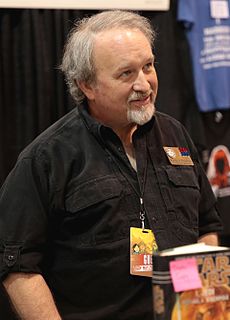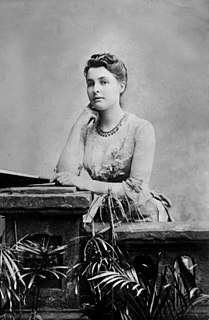A Quote by Samuel Johnson
Few of those who fill the world with books, have any pretensions to the hope either of pleasing or instructing. They have often no other task than to lay two books before them, out of which they compile a third, without any new material of their own, and with very little application of judgment to those which former authors have supplied.
Related Quotes
Whenever the powers of government are placed in any hands other than those of the community, whether those of one man, of a few, or of several, those principles of human nature which imply that government is at all necessary, imply that those persons will make use of them to defeat the very end for which government exists.
I consider as lovers of books not those who keep their books hidden in their store-chests and never handle them, but those who, by nightly as well as daily use thumb them, batter them, wear them out, who fill out all the margins with annotations of many kinds, and who prefer the marks of a fault they have erased to a neat copy full of faults.
Our heroes are simple: they are brave, they tell the truth, they are good swordsmen and they are never in the long run really defeated. That is why no later books satisfy us like those which were read to us in childhood - for those promised a world of great simplicity of which we knew the rules, but the later books are complicated and contradictory with experience; they are formed out of our own disappointing memories.
Monopolistic capitalism is to blame for this; it sunders the right to own property from responsibility that owning property involves. Those who own only a few stocks have no practical control of any industry. They vote by postcard proxy, but they have rarely even seen "their" company. The two elements which ought to be inextricably joined in any true conception of private property - ownership and responsibility - are separated. Those who own do not manage; those who manage; those who manage and work do not control or own.
The idea for Maximum Ride come from the earlier books of mine called When the Wind Blows and The Lake House, which also feature a character named Max who escapes from a quiet despicable school. Most of the similarities end there. Max and the other kids in Maximum Ride are not the same Max and kids featured in those two books. nor do Frannie and Kit play any part in Maximum Ride. I hope you enjoy the ride anyways.
I am a product of endless books. My father bought all the books he read and never got rid of any of them. There were books in the study, books in the drawing room, books in the cloakroom, books (two deep) in the great bookcase on the landing, books in a bedroom, books piled as high as my shoulder in the cistern attic...In the seemingly endless rainy afternoons I took volume after volume from the shelves. I had always the same certainty of finding a book that was new to me as a man who walks into a field has of finding a new blade of grass.
We are unreasonably desirous to separate the goods of life from those evils which Providence has connected with them, and to catch advantages without paying the price at which they are offered to us. Every man wishes to be rich, but very few have the powers necessary to raise a sudden fortune, either by new discoveries, or by superiority of skill in any necessary employment; and among lower understandings many want the firmness and industry requisite to regular gain and gradual acquisitions.
Solid scriptural theology should be valued in the church. Books in which Scripture is reverently regarded as the only rule of faith and practice-- books in which Christ and the Holy Ghost have their rightful office-- books in which justification, and sanctification, and regeneration, and faith, and grace, and holiness are clearly, distinctly, and accurately delineated and exhibited, these are the only books which do real good. Few things need reviving more than a taste for such books as these among readers.
A prejudice may be an unreasoned judgment, he [Hibben] pointed out, but an unreasoned judgment is not necessarily an illogical judgment. ... First, there are those judgments whose verification has simply dropped out of memory. ... The second type of unreasoned judgments we hold is the opinions we adopt from others ... The third class of judgments in Professor Hibben's list comprises those which have subconscious origin. The material that furnishes their support does not reach the focal point of consciousness, but psychology insists upon its existence.
Such do not always understand the authors whose names adorn their barren pages, and which are taken, too, from the third or the thirtieth hand. Those who trust to such false quoters will often learn how contrary this transmission is to the sense and application of the original. Every transplantation has altered the fruit of the tree; every new channel, the quality of the stream in its remove from the spring-head.
we have not been impressed with any attribute of the Senate other than its appearance and manners. We have heard the best speakers: they all fire off speeches which deal with the entire subject in general terms and which do not attempt to debate, to answer opponents' arguments or offer new points for discussion. And the speeches are constantly degenerating into empty rhetoric; they abound in quotations from well-known authors or from their own former speeches.



































